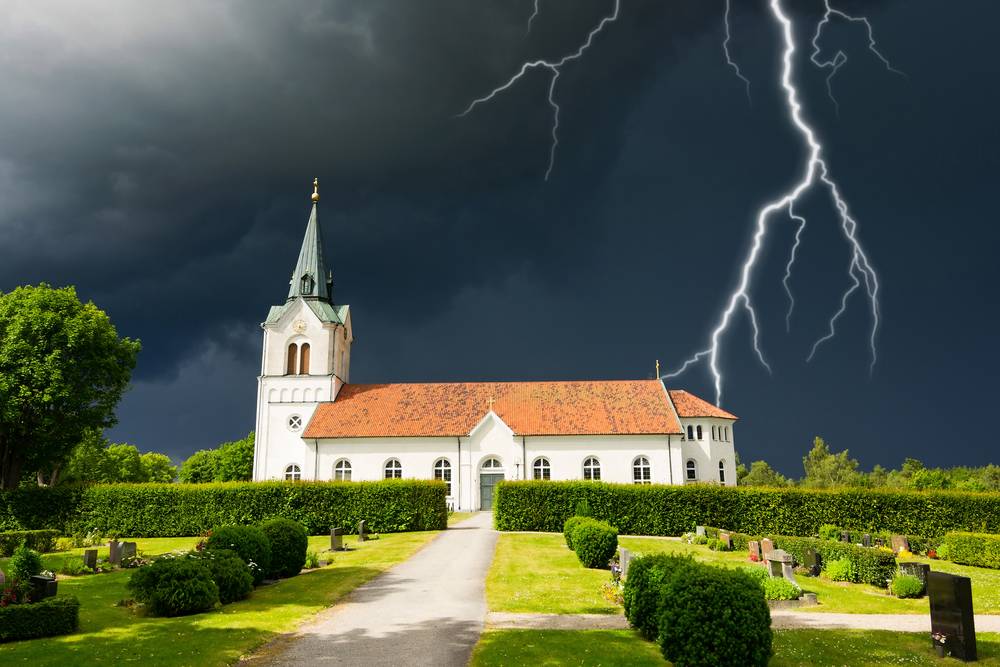
Exploring the Belief in Supernatural Causes of Natural Events
Supernatural, religious and mythical beliefs are a normal part of human culture.
In every society since recorded human history, people have explained all kinds of phenomena in the world by divine intervention or some supernatural plan.
Ancient societies believed they had to sacrifice innocent people to please the gods to bring rain, while today some people blame natural disasters on the moral imprudence of their peers. Why do we do this?
God of the Gaps Idea
Scientists, philosophers and theologians have asked themselves this question, with some coming up with the hypothesis of a “god of the gaps”.
The basic idea is that people tend to infer supernatural explanations for phenomena they do not understand.
On the one hand, it might suggest that people tend to give up their supernatural belief in something when science is able to explain certain phenomena. Another interpretation, however, suggests that people resort to supernatural explanations when a phenomenon has ambiguous or undefined causal agents.
Social vs. Natural Supernatural Events
In this line of reasoning, a group of psychologists asked whetherin human societies, people are more likely to invoke supernatural explanations for naturally occurring phenomena or for socially occurring phenomena.
The researchers believe that people are more likely to use supernatural explanations for natural events (such as weather incidents or natural disasters) as opposed to social events (such as theft or murder). This is because there is often a clear causal agent in social cases, whereas natural events usually have no single force that we can point a finger at.
“People tend to assign responsibility to intentional agents when events occur, and are more likely to appeal to divine intervention when there is no one to blame,” said study co-author Danica Dillion, a moral psychology specialist at Northwestern University. Carolina at Chapel Hill.
Read more: The human brain has evolved to believe in gods
Supernatural explanations
Dillion and colleagues analyzed ethnographic texts from 114 historical societies, including nomadic hunter-gatherer groups, fishing and horticultural societies, and large city-based societies.
Based on the descriptions in these texts, the researchers determined whether supernatural explanations were absent, uncommon, or common for various types of phenomena that fit into a natural or social category.
Researchers define “supernatural explanations” as attributing an event to supernatural processes.
“Most supernatural explanations are attributed to the actions of supernatural agents such as gods, ancestral spirits, and human practitioners of magic. And some were attributed to supernatural forces like karma and the evil eye,” says Dillion.
For Dillion and her colleagues, the results were not surprising: in general, supernatural explanations were more prevalent for natural than for social phenomena. “Our results suggest that when events have no clear agents, people fill that gap with supernatural power,” she says.
The results are consistent with previous research showing that people often anthropomorphize natural phenomena and events and imbue the natural world with an agenda as if it were a conscious agent (e.g., “The universe is against me today”).
Cognitive psychology and the supernatural
Research by psychologist Jesse Bering suggests that this tendency is due to an overextension of our theory of mental abilities.
This means that our psychology is set up to exist in a social environment, which often results in rationalizing events by attributing them to a conscious agent.
Human beings thrive in collectives, and as such, humans seem highly sensitive to detecting agents in their environment, possibly because we devote so much of our energy and resources to understanding other people’s motivations.
“Consistent with this idea, we find that supernatural explanations are more common for events that lack clearly responsible agents, such as sudden storms or unexpected murders in larger and more anonymous communities,” says Dillion.
Read more: Brains can sync up as people interact — and that could hamper consciousness research
Believing in the supernatural
The researchers also found that societies with higher social complexity were more likely to use supernatural explanations for social phenomena than societies with lower social complexity.
Dillion believes that supernatural explanations may be more common in larger, urban societies because it is more difficult to discern the causes of social incidents in societies with more complex social networks.
“The more people there are to monitor, the harder it becomes to understand individual motivations. “In cases of murder or theft in more urbanized societies, the perpetrator is more likely to remain anonymous than in smaller communities where everyone knows each other,” says Dillion.
The findings support a growing body of research that places our evolved social psychology at the root of our beliefs in religion and the supernatural.
Read more: The psychological significance of extraordinary experiences
Supernatural Causes of Natural Events Source link

